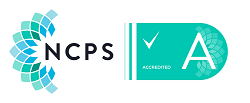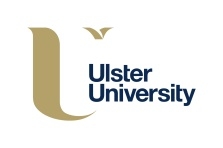Integrative Counselling Practice - Foundation Degree
Start Date: 16th September 2025
Code: YHPB1888A1
- Higher Education
- Part-Time
- Ballymena
- Add course to basket
Essentials
Duration: 3 Years Part-time
Start date: 16th September 2025
End date: 27th August 2028
Day: Tue
Time: 09:00-17:30
Information Event: Yes
Course fees for each year.
| Year 1 | Year 2 | Year 3 | Total Fee | |
|---|---|---|---|---|
| Fee | £1235 | £1235 | £1235 | £3705 |
| Reduced Fee | £705 | £705 | £705 | £2115 |
Fees are payable annually.
The fees for year 2 and year 3 may be subject to change.
This practice-based professional programme in counselling, responds to evidenced public need in NI and has been designed in consultation with industry partners, professional and academic bodies. The course is offered part-time over 3 years of study. It is awarded and validated by Ulster University and is accredited by the British Association of Counselling and Psychotherapy (BACP) and successful completion of the full award confers fitness to practice counselling.
The FdSc Integrative Counselling Practice is accredited by the National Counselling Society and, subject to our Terms & Conditions, is a route onto a national register of counsellors which is accredited by the Professional Standards Authority.
Course Content
The course is structured around 11 compulsory taught modules (see MODULES, below). These are delivered via a blended approach to teaching and learning which involves opportunities for face to face lectures, student led seminars, group work, counselling practice with peers and online teaching.
All modules are assessed via course work in keeping with Ulster University regulations. These include case study preparation, essays, audio-recorded skills work with peers or clients, reflective journaling, presentations, viva and the development of a portfolio of work. In addition to academic work, reports from clinical supervisor and placement mentors are intrinsic to the successful completion of the course. Formative feedback is offered to support student development. A minimum of 40% is required for successful completion of all modules.
In addition to the taught academic modules, students are required to complete the following:
- 100 hours supervised clinical placement working within a counselling organisation of their choice
- 30 hours personal therapy, completed with a suitably qualified therapist
- 50 hours work-based learning, completed in placement.
Successful completion of 240 credits of study, including the successful completion of the clinical practice components above, result in the award of Foundation Degree in Integrative Counselling Practice. All components of the course must be completed in order that students graduate from a BACP Accredited Course.
Detailed module information as well as the APEL (Accreditation of Prior Experiential Learning) entry requirements and dates are available within this short presentation.
Modules
| Year | Module and course code | Level | Credit point |
|---|---|---|---|
| 1 | Integrative Skills 1 | 4 | 20 |
| Integrating the Self | 4 | 20 | |
| Integrating Humanistic Theory | 4 | 20 | |
| Ethics and professional practice | 4 | 20 | |
| 2 | Integrating Cognitive Behavioural Theory | 4 | 20 |
| Integrative Skills 2 | 4 | 20 | |
| Supervised Practice 1 | 5 | 20 | |
| Psychosocial Lifespan Development | 5 | 20 | |
| 3 | Supervised Practice 2 | 5 | 40 |
| Integrating Psychodynamic Theory | 5 | 20 | |
| Personal Integrative Approach | 5 | 20 |
Exit award
Students not wishing to become a professional counsellor may exit at the mid- point of the course. The exit award of Certificate in Higher Education (CERTHE) in Counselling Studies, is awarded on successful completion of 120 credits at L4. This non-practice option, acknowledges counselling knowledge and skill development, but not to the level required for professional practice.
Course Team
All tutors are qualified and experienced counsellors. This underpins the authenticity of teaching and learning activities as students engage with practitioners who understand the challenges and opportunities of the counselling role. The following teaching team deliver the FdSc course at Northern Regional College
Minford McBride (Course Director)
Jacqueline McAllister (Curriculum Area Manager)
Nicola Quigg (Lecturer)
Michelle Laverty (Lecturer)
Clinical supervisors are appointed by students from an approved list of appropriately qualified and experienced counselling practitioners – the Ulster University Register of Counselling-Training Supervision Providers – which is renewed annually.
Placement mentors are appointed by placement agencies and work closely with the college and supervisory teams.
How to Apply
The application process involves submission of an application and completion of interview to establish suitability. It is the applicant’s responsibility to provide certificated evidence of entry qualifications with their college application in order to be considered for interview. Successful completion of all components of the admission procedures contribute to the overall admission decision. Applications will be sifted in May and June. Where the number of places is oversubscribed, additional criteria will be used and candidates will be called for interview by date order of application. Please note that submission of an application does not guarantee an interview, as places may fill before all applications are reviewed. Early application is therefore advisable.
Your application will require two character references and as this course is may require work with vulnerable adults ACCESS NI checks are required for all successful applicants.
If you require any assistance with your application you can contact our admissions team.
Terms and Conditions
Northern Regional College terms and conditions
Once accepted to the course, students are required to:
- Comply with College Policies and procedures, rules and regulations (available in your Student Diary/Higher Education Handbook and on the College VLE).
- Submit all coursework and assessments by specified dates, coursework submitted without consent after the deadline shall not normally be accepted.
- Pass all coursework with a minimum mark of 40% achieved in all modules.
Course Aims
The course aims to develop students with the required attributes, skills and competencies to work effectively and ethically with adults who wish to avail of professional counselling.
Special Features
This course is validated and awarded by Ulster University and is accredited by the British Association of Counselling and Psychotherapy (BACP). Successful completion of the full award confers fitness to practice counselling.



Assessment Methods
Case Studies, completion of personal learning journals. Tutor, peer, and self assessment, assessment of practical skills and seen and unseen examinations.
